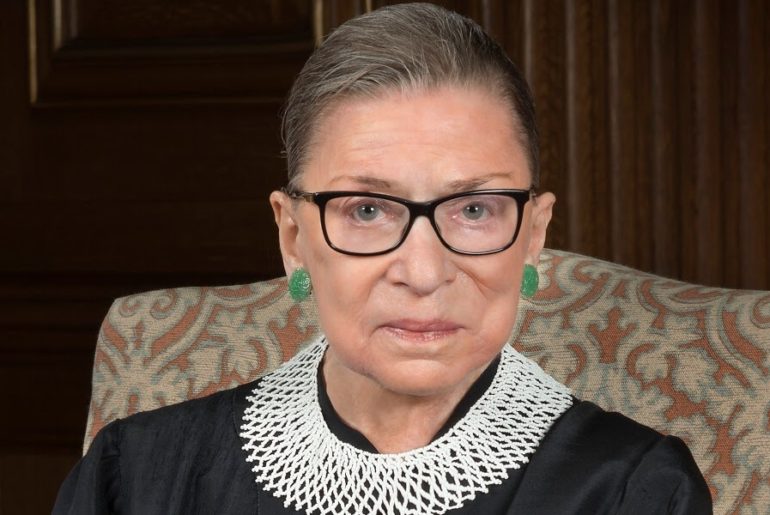Ruth Bader Ginsburg passing earlier this month left a big gap not only in the Supreme Court, but in the heart of many americans. Known for her fierce defense of women rights, Ginsburg became an icon among younger generations, who affectionately dubbed her “Notorious R.B.G.” She was also greatly praised by the Latin community, who she continuously stood up for during the length of her career.
After her passing, many Latino organizations, such as UnidosUS, Hispanic National Bar Association and the League of United Latin American Citizens, shared commemorative words about the late Justice.
“She believed in civil rights of all persons,” Albert Kaufmann, a professor of law at St. Mary’s University School of Law, told TPR. “She was a strong advocate for African Americans and Latinos and immigrants, as well as for women. I think she’s best known for her work as both as an attorney and her opinions as a justice involving rights against gender discrimination. But she certainly was very supportive of all of our efforts of African Americans and Latinos for civil rights as well.”
The death of Ginsburg, a civil rights giant, has created the fourth time in the last six decades that liberals will open up a seat to conservatives.
The concern for many, and the reason why her death has been so debated, is that if Trump chooses her replacement with support from the Senate, the effect on the US judicial system could be extremely lasting, and much of Ginsburg’s lacy of progresive rulings could be reversed.
Here are 5 of Justice Ginsburg most important legacies:
- Census Immigration Question Block
In 2019, in the 5-4 decision of the Supreme Court to block the Trump administration from introducing a citizenship question to the Census, Ginsburg was a crucial vote. Civil rights advocates were worried that the question would downgrade Latinos’ influence in the areas where they live by undercounting them because of their immigration status, which could mean those areas lose vital resources, government support, and influence.
- Siding With DREAMers
In June 2020, after a lengthy attempt by the Trump Administration to end the DACA (Deferred Action for Childhood Arrivals), Ginsburg sided with the majority in finding that the Trump administration had improperly terminated the program, keeping thousands of immigrants from facing deportation.
- Affordable Care Act and Same-Sex Mariage
Ginsburg was a frequent supporer of cases involving the Affordable Care Act as well as same-sex marriage, for which she helped overturn the marriage bans in certain states, making it legal across the country in 2015.
“We have changed our idea about marriage,” Ginsberg said during oral arguments. “Marriage today is not what it was under the common law tradition, under the civil law tradition.”
- Refugees and Everyday Immigrants
Ginsberg was a big champion for immigrants’ dignity and rights, and she believed they should be respected as soon as they stepped on U.S. soil. In 2001, She joined with the majority in Zadvydas v. Davis (2001) in ruling that the government could not indefinitely keep immigrant prisoners in jail if their home countries declined to allow their repatriation.
Then, in 2012, she again sided with the majority in striking down three provisions in Arizona’s SB1070, the state’s controversial “papers, please” law which required police officers to question the immigration status of people they stopped regardless of the reason.
- Gender Equality
Arguably, Ginsberg’s greatest legacy was her work on gender equality. Over the course of her career, she made several changes to the U.S. law that ensured gender equality and gave women the power to choose.
Some of the advances include making it illegal for employers to discriminate against employees based on gender or reproductive choices, mandating that state-funded schools admit women, giving women the right to financial independence and equal benefits (like the right to have a credit card), giving men the right to be entitled to the same caregiving and Social Security rights as women in households where women desired to pursue a career, and mandating that courts include women in the juries.
“Women belong in all places where decisions are being made,” Ginsburg told USA Today in 2009. “It shouldn’t be that women are the exception.”

